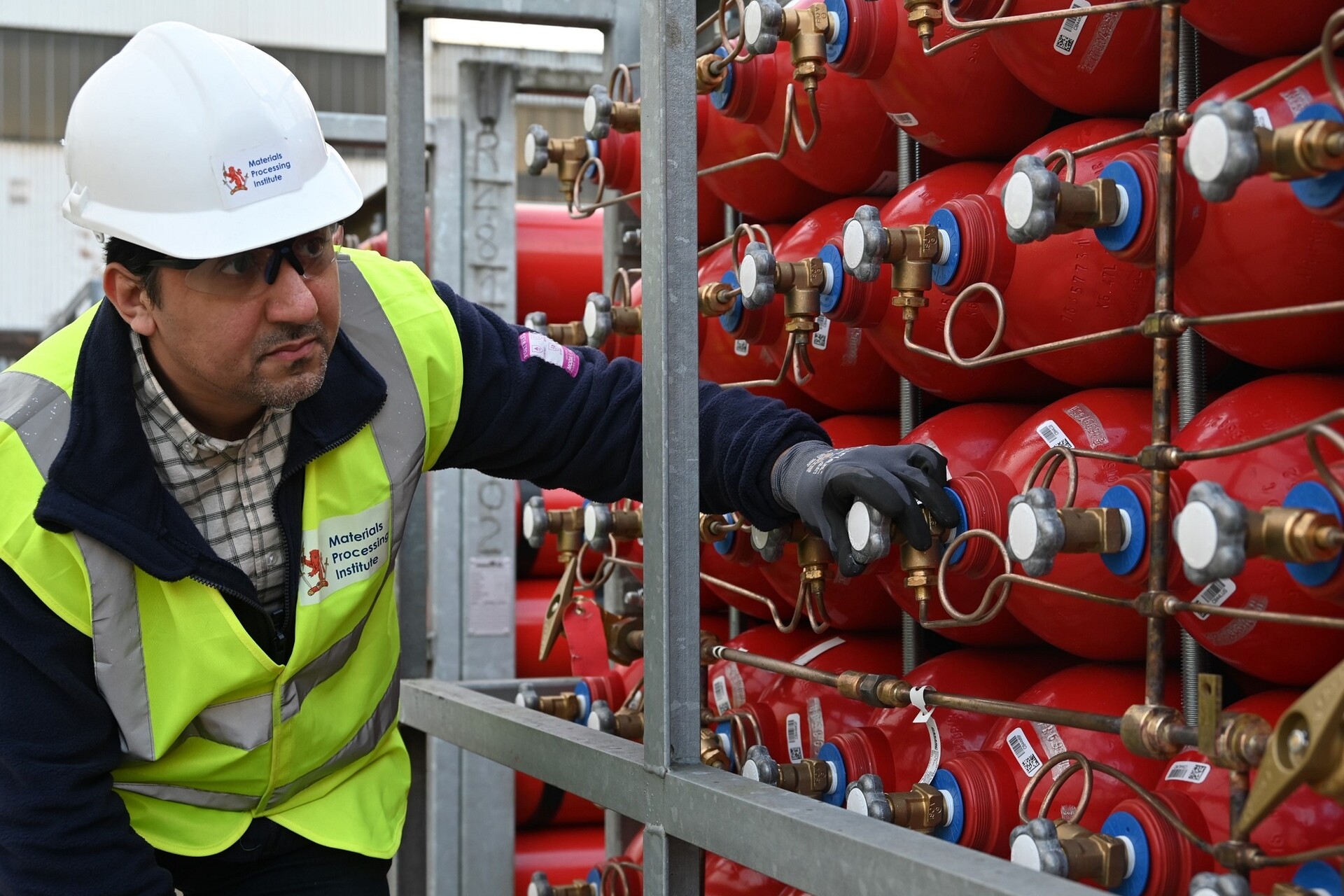Materials Processing Institute Launches Fully Operational Hydrogen Facility to Drive Industrial Decarbonisation

By Marie Carter-Robb • Posted in Engineering
The Materials Processing Institute (MPI) has successfully commissioned its hydrogen (H₂) bulk storage facility and transport network, which is now fully operational following its first hydrogen fill.
This marks a major step forward in MPI’s efforts to support industrial decarbonisation by advancing innovation and scaling up low-carbon hydrogen-based technologies.
Located at MPI’s Teesside campus, the new facility is designed to power a range of industrial equipment, including preheat and reheat furnaces. It provides clients with essential access to hydrogen, enabling them to explore and implement this sustainable alternative fuel.
Green Lithium, which is developing a lithium refinery at PD Ports in Teesside, is the first to benefit. The company will conduct hydrogen trials to decarbonise its lithium ore calcination process—an initiative that aligns with its mission to increase the supply of low-carbon lithium chemicals and reduce the carbon footprint of the European battery and electric vehicle supply chains.
MPI is further expanding its hydrogen capabilities with the acquisition of a five-tonne-capacity multi-fuel bogie hearth furnace. This advanced, fully instrumented system can heat materials up to 1300°C, supporting crucial materials heat treatment processes and low-carbon fuel switch testing.
In addition, MPI plans to introduce an on-site green hydrogen generation system, reducing reliance on external suppliers and enhancing cost-efficiency.
This latest development builds on MPI’s track record in hydrogen innovation, including its leadership of the H₂DRI project and a feasibility study on hydrogen fuel switching for reheat furnaces. Both initiatives were funded by the UK Government’s Net Zero Innovation Portfolio Industrial Fuel Switching Competition.
The H₂DRI project explored the potential of replacing traditional coke-based fuels with hydrogen and electricity in iron furnaces, laying the foundation for scaling up green steelmaking in the UK. Meanwhile, the feasibility study delivered a detailed modelling of an existing furnace alongside a techno-economic analysis of fuel switching in an industrial reheat furnace.
Dr Hichem Hakka, Group Leader of MPI’s Energy and Process Decarbonisation team, said:
“The successful hydrogen fill validates our infrastructure and safety protocols, enabling us to integrate hydrogen into decarbonisation trials. This milestone positions MPI as a leader in hydrogen technologies, offering invaluable support to companies exploring sustainable energy solutions.”
Derryth Young, Engineering Manager at Green Lithium, added:
“We are excited to be collaborating with MPI on this important innovation for Teesside. Hydrogen is a critical utility for our lithium refinery and will be a major factor in the production of low-carbon battery-grade lithium chemicals for the European downstream EV market.”
Terry Walsh, CEO of MPI, highlighted the facility’s broader impact:
“Through our state-of-the-art facilities that replicate real-world industrial conditions, we provide a platform for testing, validating, upscaling, and de-risking hydrogen-based solutions. This cements our position as a leader in hydrogen-based decarbonisation technologies, as well as a trusted partner for industries striving to meet the challenges of climate change. This facility also further strengthens Teesside’s position as a leading hub for hydrogen-based energy solutions.”
Developed with funding from Innovate UK’s PRISM and EconoMISER programmes, MPI’s hydrogen facility features advanced storage tanks, piping systems, and cutting-edge safety equipment. The PRISM programme supports innovation in decarbonisation, digital technologies, and the circular economy within the UK steel and metals sector, while EconoMISER focuses on scaling up sustainable technologies for foundation industries.
With this new hydrogen infrastructure in place, MPI is reinforcing its role as a key player in the transition to low-carbon industrial processes, driving forward the UK’s ambitions for a net-zero future.




